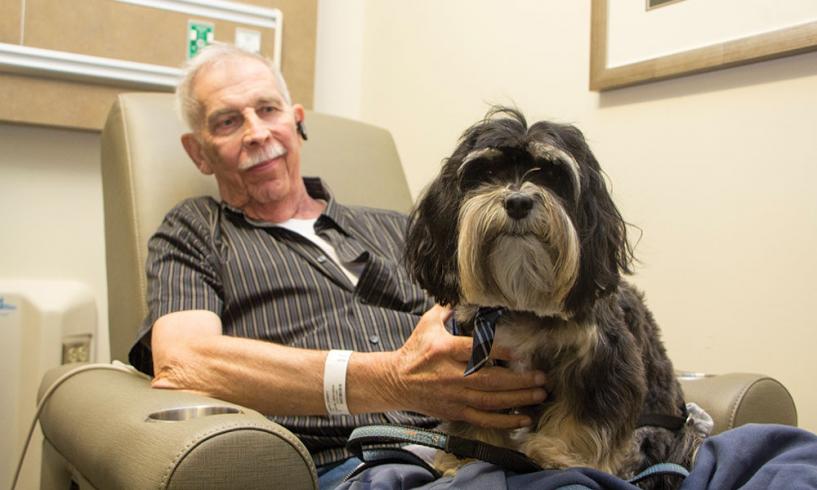Owen is a 63-year-old man with stage III hypopharyngeal cancer. He is divorced and lives alone but has an adult daughter who visits occasionally. He has a dog named Pete, who accompanies him everywhere.
Owen has been prescribed radiation and chemotherapy before surgery. He has had two weeks of therapy and has lost nearly five pounds from his already slight build. He came into the office this morning for his weekly check, and Julia, his oncology nurse, found him angry and defensive in the exam room. The cancer center dietician was backing out the door, looking concerned. She tells Julia that she had been talking to him about a feeding tube, and “he just blew up.”
What Would You Do?
“Because of the expected toxicities, malnutrition in patients with head and neck cancer is a serious clinical concern for patients, their caregivers and their providers. Malnutrition during treatment has been associated with more emergency room visits, hospitalizations and treatment interruptions; compromised treatment efficacy; and diminished quality of life. Significant weight loss prior to surgery for head and neck cancer has been correlated with worse outcomes.”
Starting a conversation by reflecting on the emotion is an effective way of initially defusing the situation. “You seem very angry at the mention of a feeding tube,” Julia says. “Can you tell me more about that?”
“I can’t even imagine it,” Owen says. “I won’t be able to eat anything by mouth. Someone is going to cut into my stomach and put a hose in? Then I’m going to have to carry around a bag of chocolate milk looking stuff everywhere with me? You have got to be kidding me!”
According to the National Comprehensive Cancer Network, prophylactic feeding tube placement should be strongly considered for patients with a 5% weight loss over one month, which Owen is on track for.
Julia explains to him, “No one will be cutting into your stomach. It is not a tube, but more similar to a button-sized disc, and it’s not noticeable with clothing on. You will only use it at mealtimes or during the evenings to supplement what you are able to eat on your own.”
She stresses that for Owen to be able to be there for Pete, and be able to walk him, he has to keep his weight and energy up. Plus, “You will do much better with this very aggressive treatment that we are giving you.”
Julia also offers to connect Owen with another patient with head and neck cancer who has just finished his active treatment but has yet to have his feeding tube removed. Owen seems most excited about this option.
Before leaving the infusion center, Owen has an appointment with the dietician, who schedules a prompt appointment with the gastroenterologist for evaluation for a feeding tube placement. Julia updates the treating oncologist and radiation oncologist and, with Owen’s permission, makes a quick update to his daughter.






